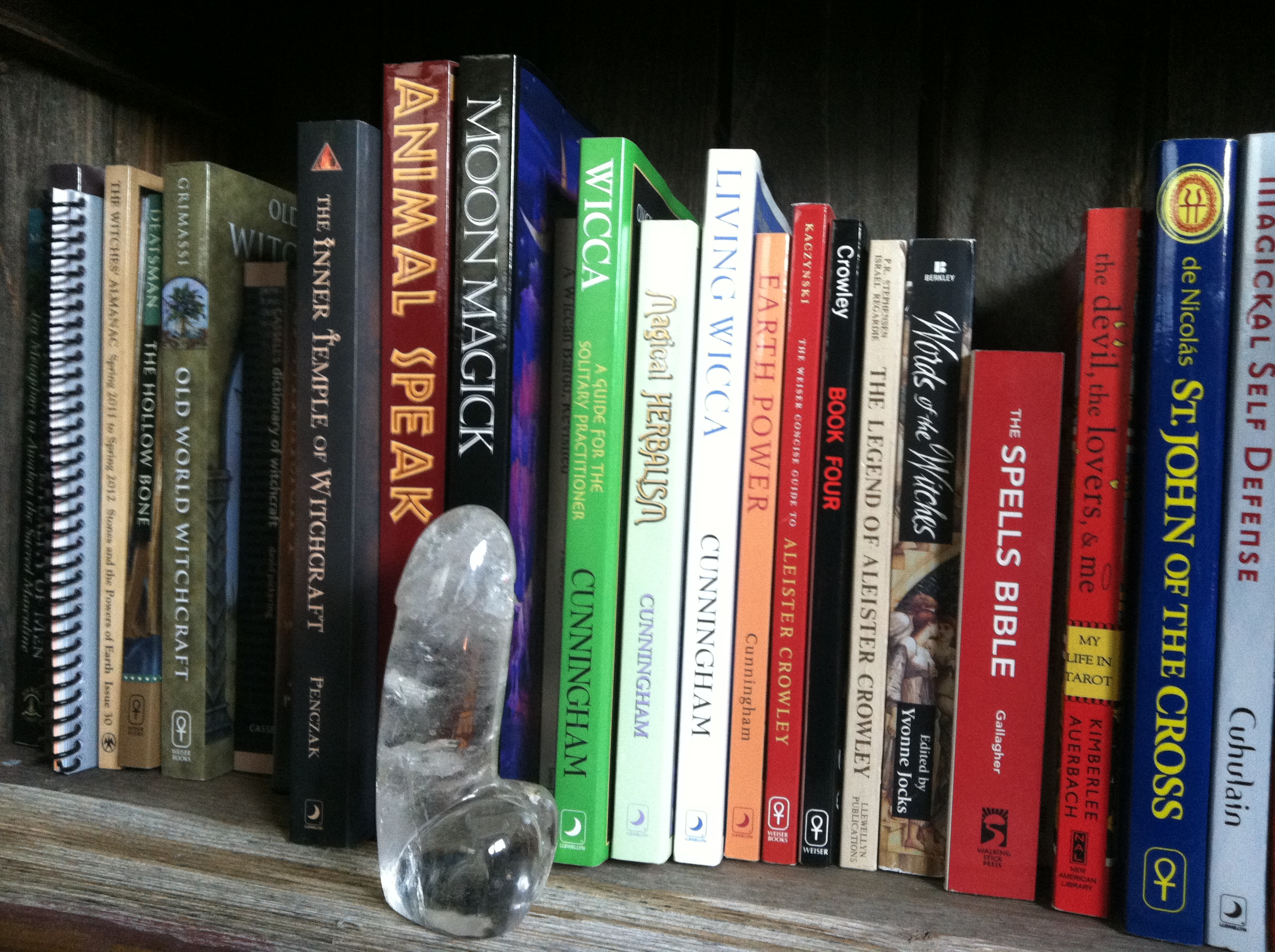Tag: Values
-

How Much Stuff Does One Pagan Need?
Should I let go of my stuff? Should I have a metaphysical yard sale, in which I sell my Cunningham books, my surplus of pewter jewelry, and my… …ahem… …crystals? Should I rid my closet of the long, green, hooded robe I’ve worn twice, my Guatemalan patchwork jacket I scored for $7 bucks, or my […]
-
What We Are: One Pagan-American Response
Star Foster asked: “What makes Pagans valuable to America? What do we bring to the table? How do we exemplify American values?”
-
The Just Treatment Of Puppies And Old People
Old folks & puppies are cute, but they shouldn’t be confused. Old people have one set of needs, and puppies another. Question is – how do you do right by both?
-
The Day The Witches Took Over Church – UPDATED
No one knew why the woman sitting beside the Pagan Chamber Choir was wearing a black, feathered, Carnival mask, and I doubt anybody asked. Her display may have seemed a bit dark for 9:15am on a Sunday, but who was I to judge?
-
Rules Of Reverence: The Sacred And The Silly
How do we find a balance between our desire for personal freedom and the legitimate need to have a standard measurement in our community?
-
Pill Popping Deities
Are the Gods little more than metaphysical designer drugs for the New Age? Are we in service to them, or is it the other way around?
-
Casting Faith
Pagans are so centered around practice. We define ourselves by what we do, not by what we believe (generally speaking). But faith is all about belief, isn’t it? How do we reframe faith as something that you do instead of something that you have?
-
Pagans Have Values, Too, Say Bloggers
Think Christians are the only ones with values? Think again.
